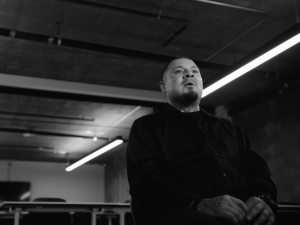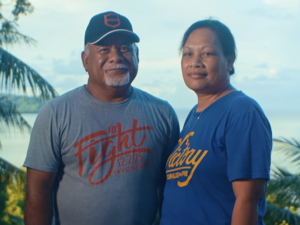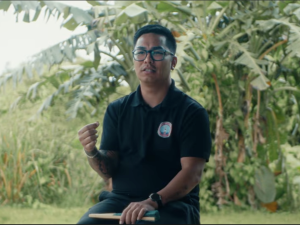When The Salvation Army in Phoenix, AZ, realized a significant portion of their community were living paycheck to paycheck, they decided to try and change the dynamic of generational poverty for the better. To do this, they partnered with local community leaders and financial experts to develop a six-week course in Financial Literacy, hoping to remove at least one of the historical barriers to building generational wealth.
It’s not an overnight fix, but the potential for life-changing impact in the local community is real.
Learn some of the history behind the issue, the important distinction between income and wealth, and why The Salvation Army in Phoenix is working to help bridge the gap – one person at a time.
Below is a transcript of the video, edited for readability.
Captain Caroline Rowe: The Salvation Army should be in communities where there’s not a lot of affluent financial people, so that people can come in and use the facility, and better their families. That’s the point, right?
Captain Dustin Rowe: We looked at was happening in the country, we looked at what was happening in Phoenix, and how we can impact our community, how to impact people who are being taken advantage of, people who are minorities specifically in the community.
Captain Caroline Rowe: And actually the highest number of African Americans in the state of Arizona live in this zip code. And so we thought to ourselves, man, people are hurting in our neighborhood, specifically. And so that’s when I called Dr. Bob Pipkin, and I said, “We don’t have the answers.” “We don’t know what to do. Help us.” “Where can we make an impact?”
Dr. Robert Pipkin: She said, “Bob, I want you to do this.” And, you know, my hat’s off to her. She took a stand. I mean, it’s not an easy topic, and a lot of people don’t want to hear it.
Captain Caroline Rowe: Dr. Bob and Colonel Ray were really into bridging the wealth gap, right? And Jesus, in so much of his messaging, references money and possessions a lot. And that really is, like, uniquely tied to our hearts, right? What we have, our security.
Dr. Robert Pipkin: My parents didn’t know anything about money, because they were born in Mississippi, they picked cotton. They didn’t know anything about finances. They couldn’t go to school because of the color of their skin. And I always thought by dressing and having all these cars, that made you important, but that doesn’t build wealth. It took me a while, you know, 53, to really start understanding what I need to do.
Yvonne Pipkin: You can die broke…with income. But wealth is something that’s generational.
Dr. Robert Pipkin: It’s systemic.
Yvonne Pipkin: It’s built on your assets. You want to build wealth. Because wealth changes people’s lives.
Dr. Robert Pipkin: When you talk about the wealth gap, you talk about the economic structure within different communities. You take the net worth for a European American family, it’s $195,000. For an African American family in America, it’s $25,000. For a Hispanic community, it’s $36,000.
Yvonne Pipkin: The wealth gap is the disparity between rich and poor in this country, which is getting wider and wider.
Colonel Raymond Burden: So I think about my father, who served in World War II, and came back and had to compete for the GI bill. Well, the government participated in this notion of redlining. Realtors and home builders took a red pencil and drew borders around areas that happened to be predominantly minority neighborhoods, and made conscious decisions, actual policies that loans would not be provided for the purchase of homes on the other side of the red line.
And so invariably, those of the majority race were able to purchase homes, build equity, and build generational wealth, versus the minority communities that did not have the opportunity, because they were limited to certain areas where decisions were made not to offer loans, stunting the wealth growth opportunity for the African American community.
Captain Dustin Rowe: Think how much money has been made on homes. Most wealth has been built through real estate.
Captain Caroline Rowe: If we say we’re The Salvation Army, and we’re in this community, isn’t there some responsibility when there’s pain? So people who are thirsty and it’s 110 degrees, it’s our responsibility to give them a cold glass of water. If people are here and they need knowledge, and we have a way to get it done, why wouldn’t we do it? You know what I mean?
Colonel Raymond Burden: Financial literacy: you’re talking about essentially providing people with knowledge and information to hopefully make more informed financial decisions. How do you think about money, keeping a budget, savings, borrowing, credit scores, investing, and then the notion of protecting it.
Yvonne Pipkin: Two things that we’ve been lacking—whether you’re a poor white, poor African American, poor Hispanic—and that’s access and information. That whole idea that, you know, you can pull yourself up by your bootstraps, you got to have some straps first. But the lack of knowledge…it’s deafening. It really is, you know. When we talk to young people and they just don’t know, because there’s nobody around them that can tell them.
Colonel Raymond Burden: It’s amazing the number of people that don’t have a basic savings account.
Yvonne Pipkin: We have to teach this to our children. And it’s up to you to make sure. Because if we don’t, then we have generation after generation that’s going through the same thing, starting at zero. And that’s the cycle that Bob and I want to break.
Dr. Robert Pipkin: And some people feel there’s no hope for them.
Yvonne Pipkin: Some people don’t have anything.
Dr. Robert Pipkin: If you’re accustomed to living from paycheck to paycheck, that’s all you know. You have to change that mindset.
Yvonne Pipkin: You better know what the game is, because there is a game. But you — it’s no different than playing basketball or hockey, if you don’t know the rules, you lose. And so life is like that. Because we live in a culture of debt.
Colonel Raymond Burden: Access to resources is significant. But I’m a believer in the notion that you’ve got to just make the effort to put the information out there, where folks are comfortable in understanding that there’s no dumb question.
Captain Caroline Rowe: People sometimes are ashamed to say, “I don’t know what a 401K is,” or, “I don’t know what a CD is,” or, “What should I be looking for in a credit card?” or, “How do I finance a house?” And I think all of our instructors are super approachable and they’re never trying to sell products to these people, they’re doing it basically with a heart that is giving.
Dr. Robert Pipkin: People get discouraged real, real easy, and say, “Well, I’m not going to go through that.” But like I said, I’m hoping that we continue to make a difference. And when I see people who get it, tears come down my face. When they walk out of here, I want to see a smile that, “I can do it.”
Colonel Raymond Burden: For those of us who at least profess to be Christians, the notion of hope is so significant. The young person or the old person that comes to this class, I hope that they come away with hope that they can change whatever situation they find themselves in for the better.
Captain Caroline Rowe: We’re not going to fix this overnight. So we address the things that we can, and the handful of people that can get truth, can change their life for the better.
Captain Dustin Rowe: How can we look at our community, who’s suffering, and look at the areas where there’s the greatest need, and not act? It’s kind of like you’re earning the right to present Jesus by loving them like Jesus.
Do Good:
- See more videos like this in our video feed.
- Are you a Do Gooder, someone who cares about bringing goodness into the life of your family and community? Subscribe to The Do Gooders Podcast to be inspired by those doing good and find tangible tips for simple actions you can take today.
- Did you know The Salvation Army served more than 23 million Americans last year fighting hunger, homelessness, substance abuse and more—all in a fight for good? Where can you help? Take our quiz to find your cause and learn how you can join in today.












